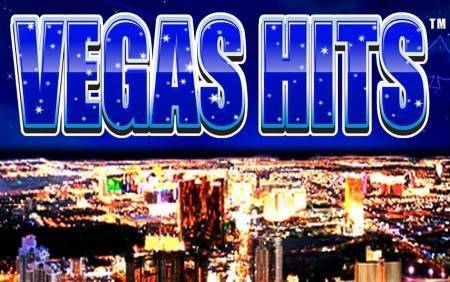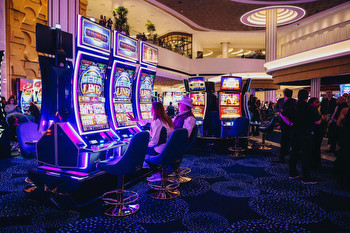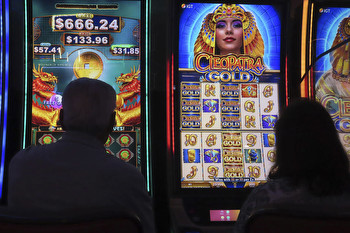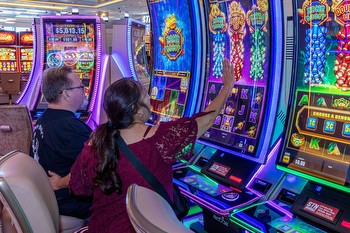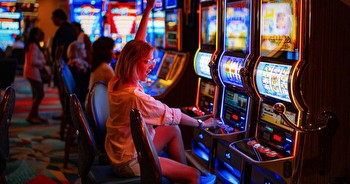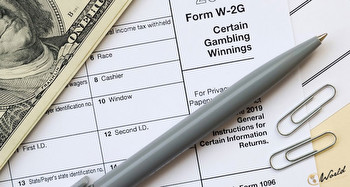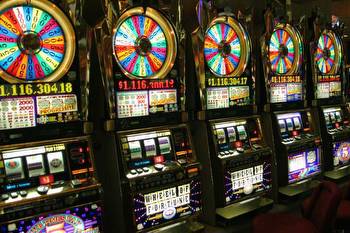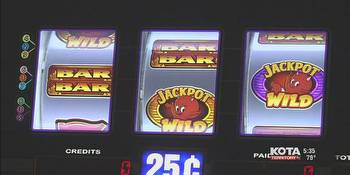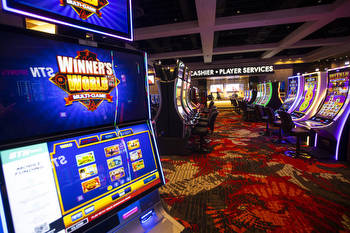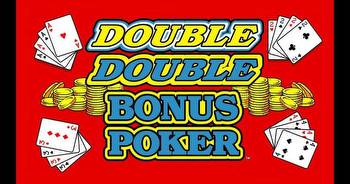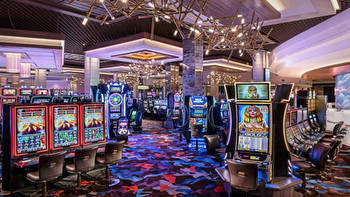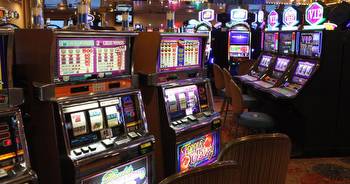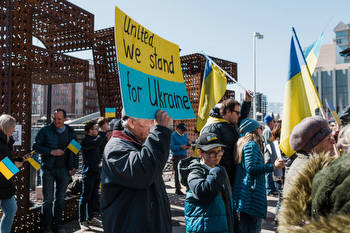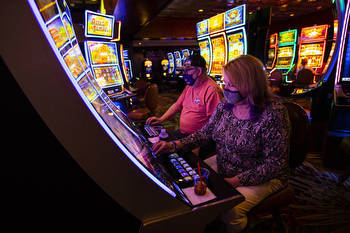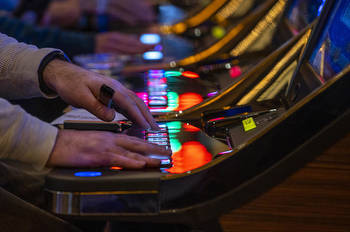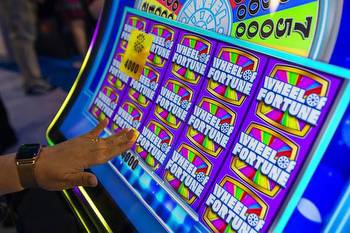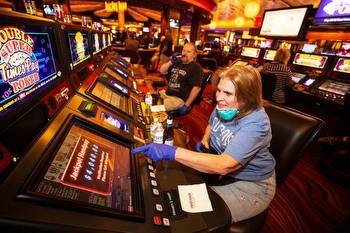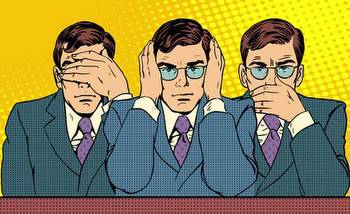Bipartisan House lawmaker pair aims to keep IRS at bay from slot machine winnings
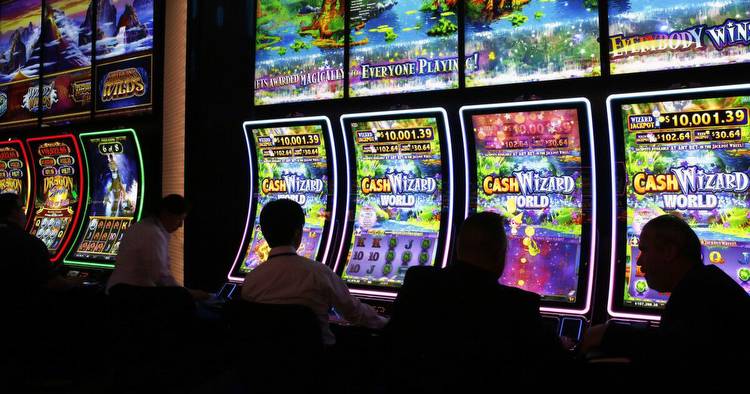
LAS VEGAS, Nevada —Slot machine winnings will sound to some like an oxymoron. Slots, after all, have long been dubbed “one-armed bandits” for their low odds compared to other forms of casino gambling like blackjack and baccarat.
But some players can and do come out ahead on slots, and now a bipartisan bill aims to protect more of those winnings from the IRS. The tax threshold for slot winnings would be raised from $1,200 to $5,000 under a bill sponsored by Rep. Guy Reschenthaler (R-PA), a member of the House Republican leadership, and Rep. Dina Titus (D-NV), whose Las Vegas-based district annually hosts more than 30 million visitors, many of them eager slots players.
The Shifting Limits on Thresholds (SLOT) Act would hike the tax-free threshold for the first time since 1977. The bill would effectively index slot winnings to inflation, with $5,000 as the estimated level to which the exemption would have risen over the past 45 years.
“The 1977 slot jackpot reporting threshold hurts both Pennsylvania’s gaming industry and its patrons,” said Reschenthaler, who is chief deputy whip in the House Republican majority, in a statement.
“Because the threshold has not kept up with inflation, it has resulted in a drastic increase in reportable jackpots, which trigger tax burdens for winners and compliance burdens for casinos,” said Reschenthaler, representing the southern and eastern Pittsburgh exurbs 14th Congressional District.
“Increasing the threshold will eliminate this onerous red tape, ensuring the gaming industry can continue to support good-paying jobs and foster economic growth in southwestern Pennsylvania and across the country,” Reschenthaler added.
And Titus, representing Nevada’s 1st Congressional District, stretching from the Las Vegas Strip to the behemoth desert city’s suburbs, said the change is long overdue.
“This legislation would reduce the paperwork burden on businesses and players while ensuring our tax code reflects economic reality,” Titus said in a statement.
Lower odds for slots
State laws allowing slot machines vary widely — if they’re allowed at all, as Hawaii and Utah ban gambling entirely.
Nevada is the only state with no significant restrictions on where slot machines can be located. They’re among the first thing passengers see upon arrival at Harry Reid International Airport. Slot machines can be in restaurants and other businesses, and can also be found just inside Nevada’s state lines with Arizona, California, Oregon, Idaho, and Utah, so drivers can spend money on them one last time before departing.
In Pennsylvania, slot machines are located in 14 casinos. That includes Harrah's Philadelphia — in Chester, just south of the city, along the Delaware state line. Also, Presque Isle Downs & Casino, in the northwest Pennsylvania city of Erie, and Live! Casino Pittsburgh located in Greensburg, population of 15,000 and 30 miles southeast of the City of Bridges.
In New Jersey, slot machines are only allowed in hotel casinos operated in Atlantic City. Several states (Indiana, Louisiana, and Missouri) allow slot machines and other forms of gambling only on licensed riverboats. Delaware, meanwhile, allows slot machines at three horse tracks.
The proposed federal tax change to raise the level of taxable income from slot winnings would, in theory, provide more incentive to play slot machines.
Still, slot machine odds are long — chances of winning the top prize, on maximum bets, range from a one-in-5,000 to one-in-about-34-million chance, depending on a range of factors. Blackjack, by contrast, has the best odds of any casino game, with chances of winning above 40%. So, while cards' luck of the draw is still a factor, winning involves at least some strategy, making it easier to end in the black than on slot machines.
That’s why proposals to raise the tax threshold on slot winnings deserve some scrutiny, said Shane Kraus, assistant professor of psychology at the University of Nevada, Las Vegas, whose area of study includes gambling disorders.
“I don’t think it’s an amazing idea. If it passed, I’d want to see some robust funding for outreach and treatment available to problem gamblers,” Kraus told the Washington Examiner. “It would need to be balanced with some messaging on public health and treatment related to gambling."
About 1%-2% of the population has a gambling disorder, studies show. Still, the threat of encouraging low-odds gambling isn’t what it was in the past. Slot machines have been declining in popularity among gamblers, according to Kraus.
“Slot play is declining across the board. Sports betting is kind of the future,” he said. “Younger people don’t do slots. They’d rather play poker, or they’re doing online sports betting.”
Another UNLV expert on the hometown industry, Dr. Brett Abarbanel, executive director of the university’s International Gaming Institute, said the House legislation to let slot players keep more winnings untaxed seems benign and potentially good public policy.
“It seems to be exactly what it describes — updating a tax threshold to update for inflation. That wouldn’t necessarily drive riskier behavior,” Abarbanel told the Washington Examiner.
“To me, this is something that’s quite neutral. And perhaps the positive aspect is that the tax law would be updated,” said Abarbanel, also an associate professor at UNLV’s William F. Harrah College of Hotel Administration.







